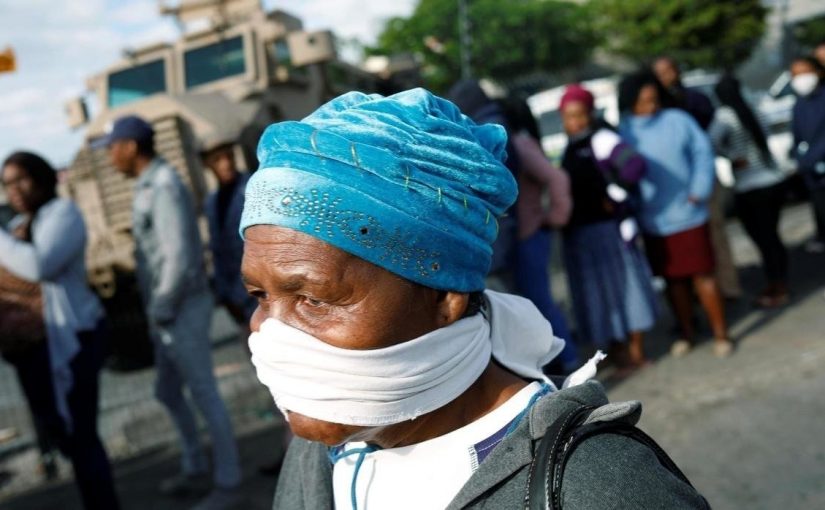Pope Leo calls for peace in Mozambique's Cabo Delgado - Watch
Mozambique: INAE warns against disrespect of preventive measures – AIM

File photo: Lusa
Mozambique’s National Inspectorate of Economic Activities (INAE) has warned that, over the past week, there was “complete disrespect” for the measures needed to prevent the spread of the Covid-19 respiratory disease, following the end of the state of emergency on 29 July.
President Filipe Nyusi announced the end of the state of emergency because the Mozambican constitution does not allow a further extension. The state of emergency took effect, for 30 days, as from 1 April, and was extended for a further three periods, all of 30 days.
But the Constitution rules out a fourth extension. Nyusi’s report will be discussed on Tuesday by the Mozambican parliament, the Assembly of the Republic, and only then will decisions be made as to what new measures can be taken to enforce preventive measures against the pandemic.
In the meantime, there is a legal hiatus. Some people took advantage of this to try to reopen bars closed during the state of emergency, and to ignore the limits on the number of passengers who can be carried in buses and minibuses.
Angered by this apparent breakdown, INAE spokesperson Tomas Timba told a Maputo press conference on Tuesday “As we could see on Friday and Saturday, young people are not worried by the pandemic, but only by the state of emergency. Businesses are not worried about public health, the health of their consumers, but only in making the largest possible profit”.
Timba stressed that the end of the state of emergency does not mean that the pandemic has come to an end. On the contrary, the number of Covid-19 cases and deaths reported by the health authorities has continued to increase.
INAE hoped to persuade business people and consumers not to relax the measures of prevention, until the government had announced the next steps in the fight against Covid-19.
But INAE inspectors had found many people relapsing into “irresponsible” habits. They had found large crowds gathering at various establishments and on the public highway to drink alcohol. Bottle stores stayed open beyond the legally established closing time of 21.00, and the crowds showed little interest in social distancing or in washing their hands.
Timba stressed that the fight against the pandemic is not just the Government’s responsibility. “We are all active subjects in this act”, he said. “We should all contribute actively to block the spread of the virus”.
INAE appealed to all businesses to follow preventive measures, regardless of the end of the state of emergency. They should limit access to their premises, depending on the space available, and should ensure a distance of at least 1.5 metres between clients and between clients and workers. The temperature of clients should be taken when they entered the premises, and their names should be registered, he said (so that thy can be contacted if any other client falls ill).
A further note of warning came from the Mozambican Federation of Road Transport Associations (Fematro) which advised against overcrowding passenger transport vehicles, following the end of the state of emergency.
Among the measures imposed by the government under the state of emergency was to limit the number of passengers who can be carried in the minibuses (known as “chapas”) which provide much of Mozambique’s urban passenger transport. Chapa operators said this would force them to operate at a loss, and on some routes they went on strike, refusing to run a service at all, if they could not overcrowd their vehicles.
With the end of the state of emergency, bus and minibus operators have reverted to cramming as many passengers as physically possible into their vehicles, creating conditions favourable to the spread of Covid-19.
Contacted by AIM, Fematro chairperson Castigo Nhamane said the situation does not yet allow a return to the previous number of passengers on the buses.
“We are seeing cases of a breakdown in discipline on the part of some transport operators who have unilaterally decided to increase the number of passengers, thus putting their lives at risk”, said Nhamane. He stressed that Fematro has not yet issued any guideline suggesting a relaxation in the number of passengers who can be carried.
Bus and minibus drivers, he added, should continue to respect the limits imposed during the state of emergency, since there is still no sign that the pandemic is being defeated.













Leave a Reply
Be the First to Comment!
You must be logged in to post a comment.
You must be logged in to post a comment.